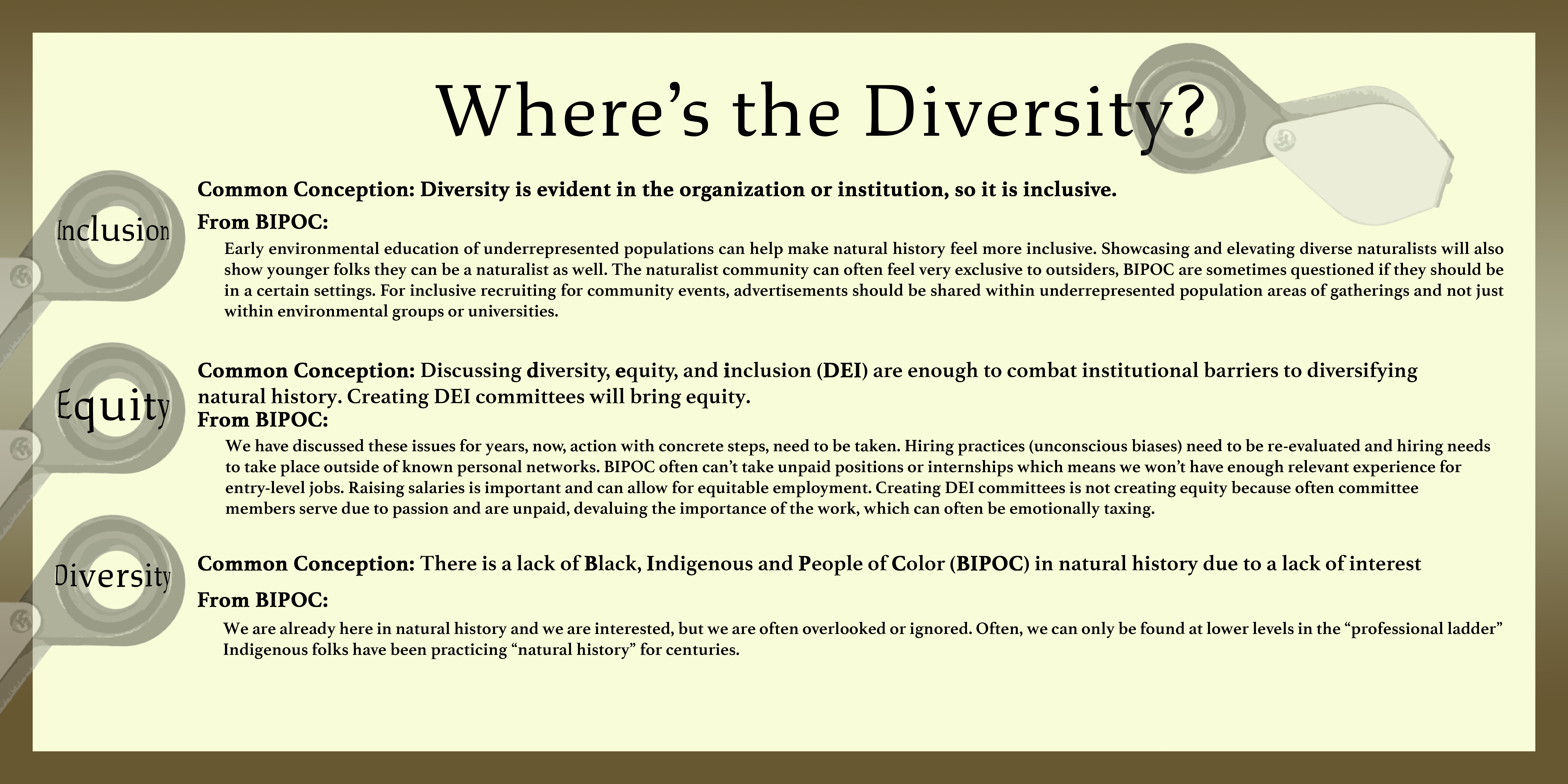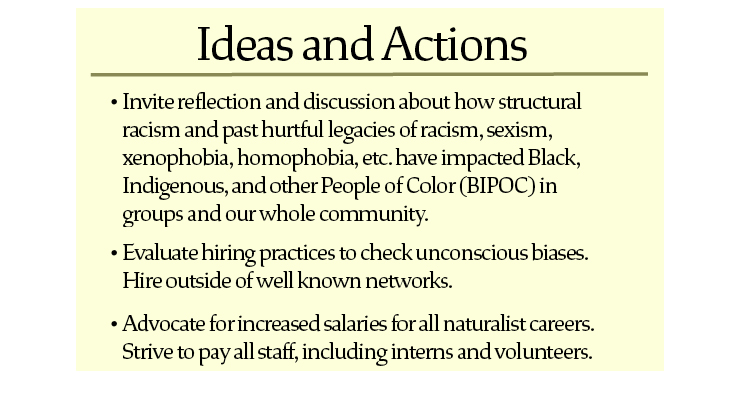Increasing Diversity, Equity and Inclusion in the Naturalist Community
By: Justin Luong
DEI is a common abbreviation for Diversity, Equity and Inclusion which generally refers to efforts aimed towards increasing either racial, ethnic or gender diversity within organizations.
Inclusion revolves around providing space for less represented voices, actively listening to suggestions and making sure the work environment is comfortable for those of all backgrounds.
Equity provides a critical approach that provides action to address disparities that may arise because of socioeconomic contexts. Equity aims to help those that may need additional assistance in order to reach their full potential.
Diversity is the representation of many different groups (racial, ethnic, gender, sexual orientation, disability, etc.) within one community. Without equity and inclusion, diversity likely will be ephemeral and unsustainable.
Diversity, Equity and Inclusion (DEI) in the natural history community has progressed, but there is still work to be done. Sometimes those in higher positions who are able to enact change have misconceptions about what is causing a lack of diversity in a space. Below are some common misconceptions Black, Indigenous and People of Color (BIPOC) naturalists often experience within the community.

Together, we are expanding the community of naturalists here in Santa Cruz County and beyond. This effort involves not only addressing misconceptions but also taking concretes actions.

Learn more about diverse naturalists in the Naturalists Profiles section. You can also learn more about what the Norris Center is doing to increase DEI on the Norris Center's website.
